What is load balancing? Load balancing is the process by which inbound traffic to your website or web application is distributed across multiple servers.
In the majority of cases a physical load balancer is situated in front of your servers, or server cluster. It distributes traffic across the load balanced servers in accordance with a set of predefined configuration rules. The load balancer constantly checks the health, or availability, of the servers within the hosting platform.
Load balancing is an automated process. It seamlessly improves the user’s experience by sharing traffic across the designated servers so speeding up the website performance.
Load balancing is particularly important for busy networks, where it is difficult to predict the number of requests that will be issued to a server.
Load balancing for high performance websites and applications
The performance of your servers has the potential to directly influence both your online brand experience and your revenue generation. Users will click elsewhere if your website does not load quickly and Google’s algorithms now reward websites with pages that load more quickly.
Load balancing is a straightforward concept but one that can make a big difference to your website performance and its availability.
In most cases, a physical load balancer sits in front of your servers, or server cluster, and distributes traffic to the load balanced servers according to a set of configuration rules. The load balancer will continuously check the health, or availability, of the servers, website or application within the hosting platform.
By load balancing your servers, you can guarantee a faster user experience whilst also providing higher availability, as your website is protected from a single point of failure at the server level.
Load balancing allows you to:
- Increase website performance. By using multiple servers to deal with user requests, you can improve throughput to ensure a high speed performance for your websites or web applications.
- Easily scale your hosting platform by adding more servers behind the load balancer in times of anticipated high traffic.
- Increase your website response times to improve your Google search ranking.
- Protect against downtime or manage server maintenance. In the event of a server failing, or being down due to scheduled maintenance, the load balancer will automatically direct traffic to the live server(s).
Global server load balancing
For organisations with websites or online applications that have a very limited tolerance for downtime,
Global server load balancing is different from dedicated or shared load balancing in that the service is DNS (Domain Name Server) based. Your managed servers will be located in two different data centres. SiteRedirect then continually polls the IP addresses of the managed servers to check for availability. In the event that SiteRedirect identifies a server is not available in the primary data centre then the service will failover to the servers located in the secondary data centre. It is not necessary to replicate the full managed hosting solution in the second centre but the solution still requires more investment than shared or dedicated load balancer services.
Global server load balancing provides a guaranteed level of availability because it is not dependent upon a single physical data centre location. SiteRedirect is based upon global server load balancing devices located in three different data centres providing a highly resilient platform capable of withstanding multiple failures.
Why choose global server load balancing?
GSLB technology is one of the most resilient techniques available to distribute load between server infrastructures in different geographic locations and is the de-facto standard used by many large web sites.
It leverages the DNS system already at the heart of the Internet to distribute traffic between independent data centres. By providing web services in multiple physical locations with no interdependence between physical sites.
KEMPTECHNOLOGIES

Kemp is transforming application delivery and security by providing the most flexible deployment, delivery and licensing options for customers embracing cloud and hybrid infrastructures.
- Layer 4 and Layer 7 Load Balancing and Cookie Persistence
- SSL Offload/SSL Acceleration
- Application Acceleration: HTTP Caching, Compression & IPS Security
- Full HTTP/2 support
- WAF – Web Application Firewall
- Global Server Load Balancing
- Edge Security Pack (Microsoft TMG Replacement)
- Application Health Checking
- Adaptive (Server Resource) Load Balancing
- Content Switching
- Protection of counterfeit DNS data with DNSSEC support
- Location, proximity and availability-based policies
EDGENEXUS
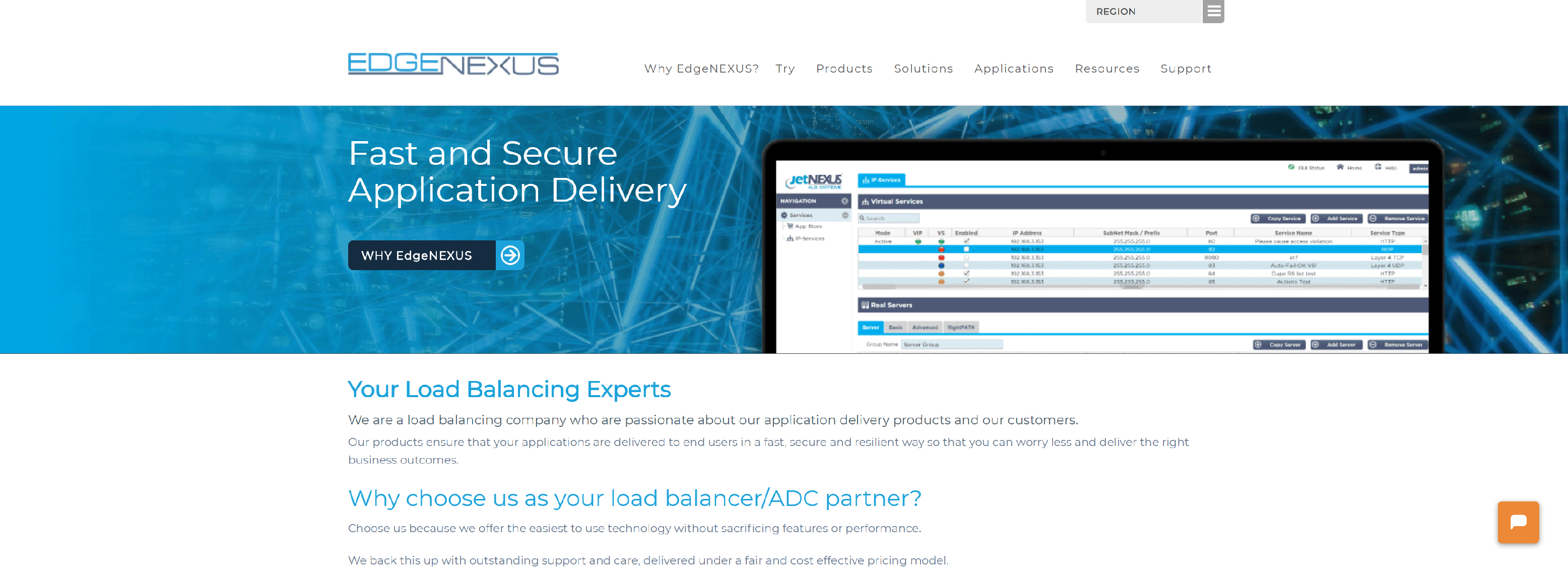
Powerful, feature-rich load balanceing, ADC and advance Edge delivery platforms that are powerful, flexible and very easy to use.
- Pre-Authentication
- Web Application Firewall
- Layer 4-7 Load Balancing
- Advanced Server Health Monitoring
- Automatic Configuration
- Reverse Proxy
- SSL Offload
- Intelligent Traffic Management
- Content Caching
- Content Compression
- TCP Conn. Management
IMPERVA
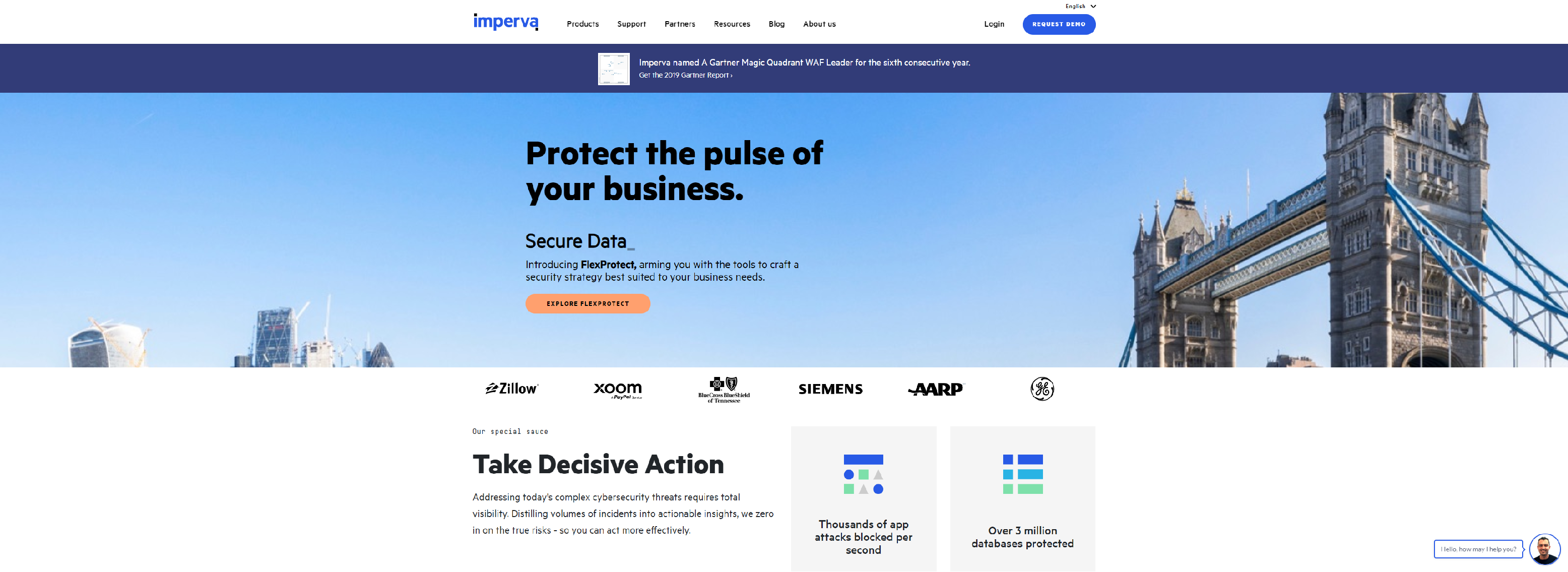
Imperva provides complete cyber security by protecting what really matters most – your data and applications – whether on-premises or in the cloud.
- Local server load balancer
- Global server load balancer
- Automatic site failover
- Health monitor
- Application delivery rules
- Real-time dashboards
SNAPT
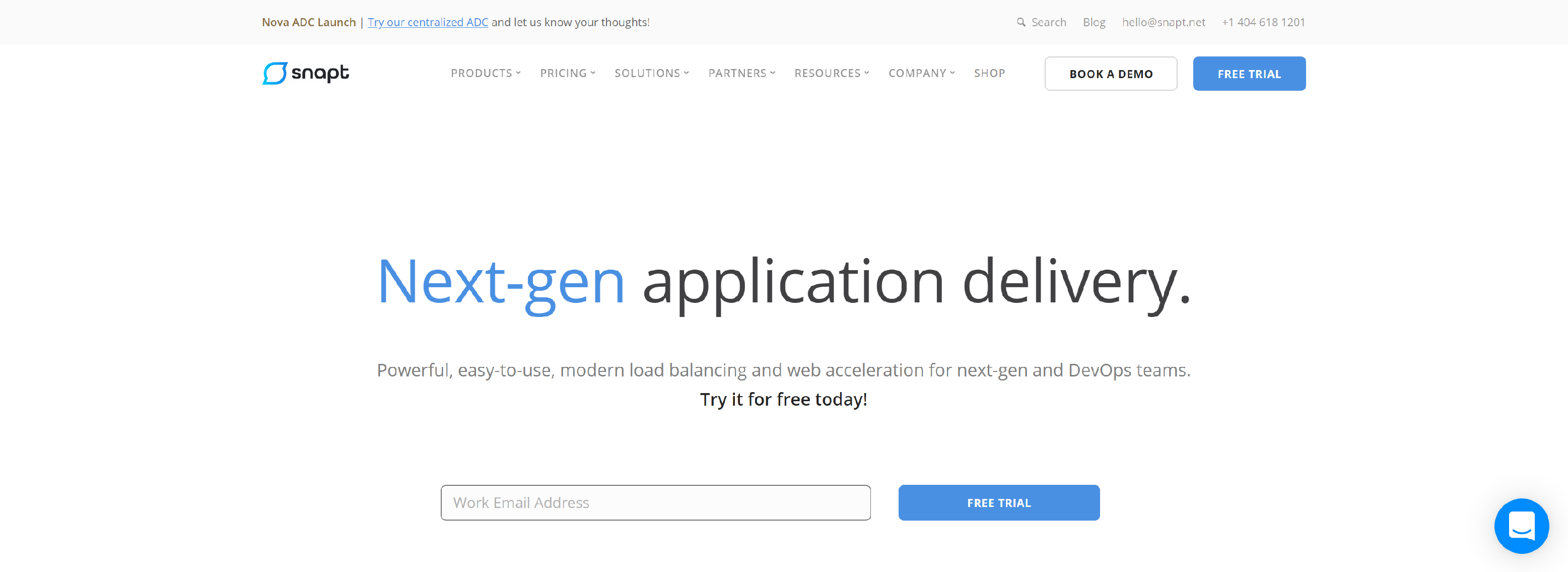
Powerful, easy-to-use, modern load balancing and web acceleration for next-gen and DevOps teams.
- The Enterprise-grade high availability, performance and security
- Flexible enough to fit into any network
- Live analytics and insight into your network
- Modern cloud-native design ideal for DevOps
NGINX
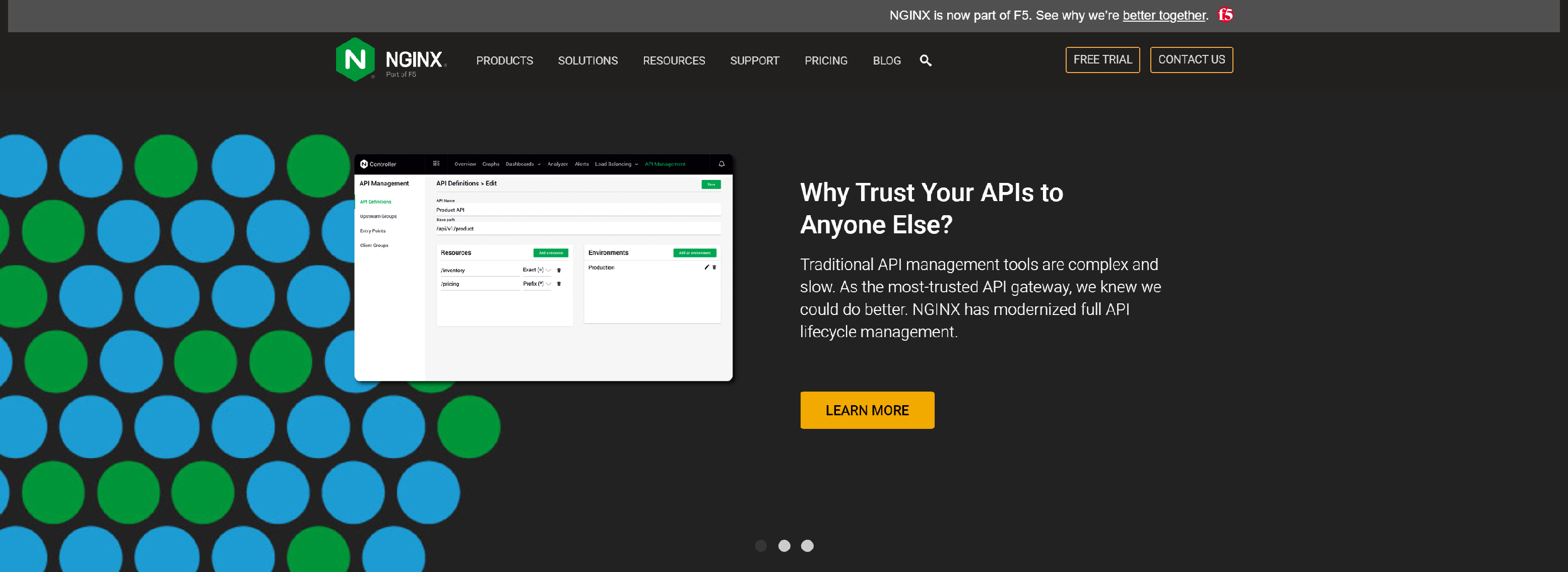
Load balancing with NGINX Plus can significantly increase your application performance across multiple HTTP, TCP, and UDP applications.
- Cut costs
- Shorten time to market
- Deploy anywhere
- Modernize IT infrastructure
- Integrate easily
- Empower developers
BARRACUDA

Barracuda Load Balancer ADC optimizes network traffic distribution for greater application and website performance, all while providing protection from an ever-expanding list of cyber threats.
- Highly Scalable
- Microsoft Certified
- Always Available Performance
- Secure Application Delivery
- Enhance Application Performance on Public & Private Clouds
HAPROXY
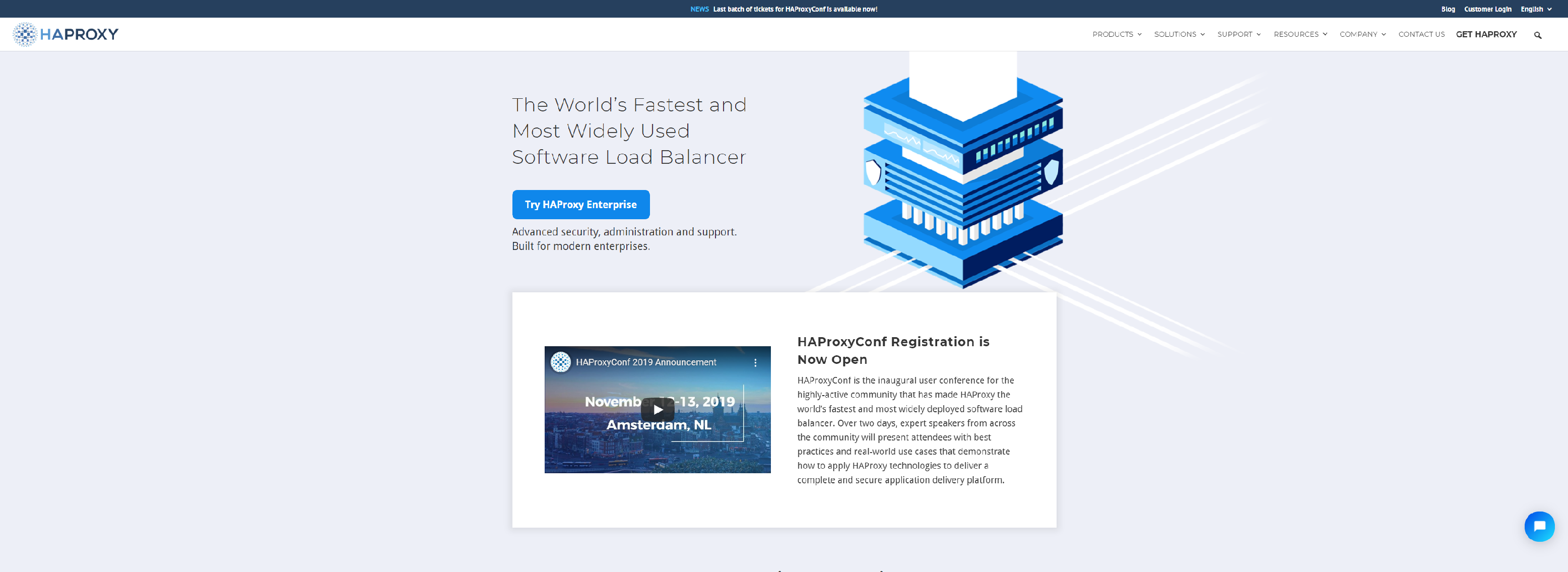
HAProxy Technologies is the world’s leading provider of software load balancers and application delivery controllers (ADCs) for modern enterprises.
- Cloud Native Logging
- Random based load balancing
- Large Object Caching
- Priority based server queues
- FastCGI Support
LITESPEEDTECH
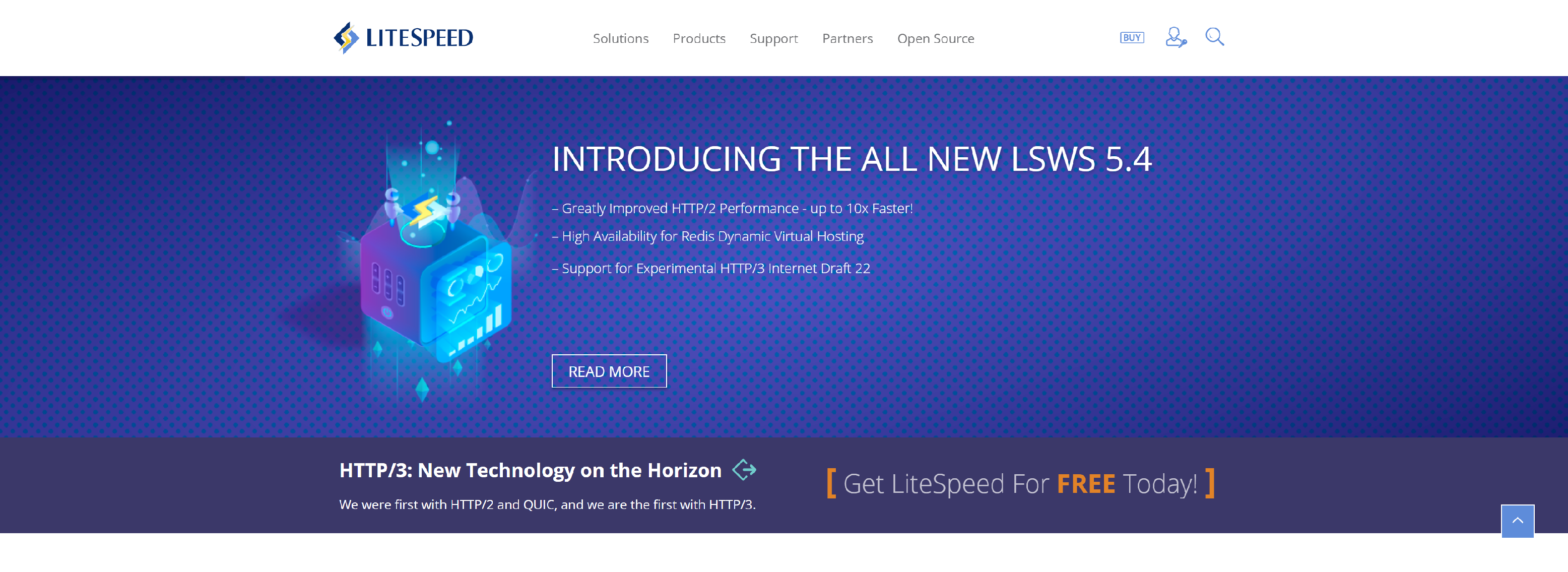
LiteSpeed provides one-stop web-acceleration solutions that embrace and advance cutting-edge technologies.
- Apache Drop-in Replacement
- Control Panel Compatible
- CloudLinux Integration
- LSCache Engine with ESI
- Zero-Downtime Maintenance
- One-Click Cache Acceleration
- Fastest PHP Available
- Ruby + Python App Server
AVINETWORKS
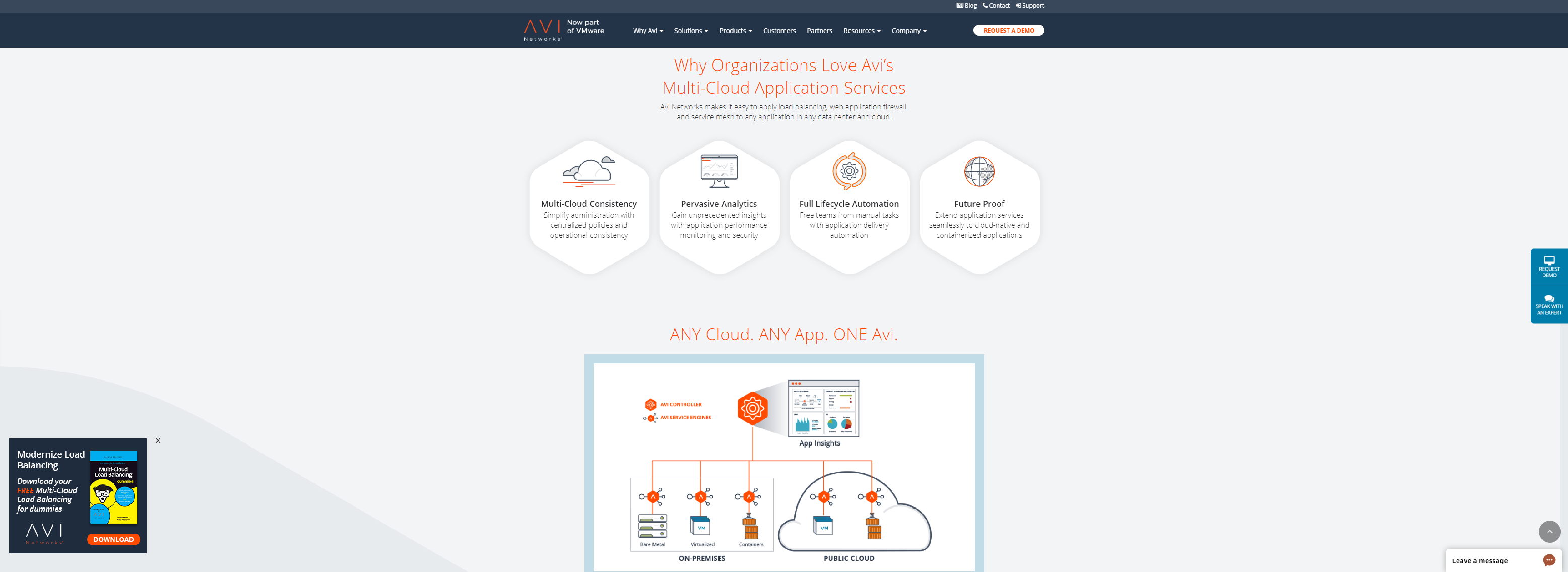
Avi Networks Software Load Balancer enables app services beyond traditional application delivery controllers w/ the speed & reliability enterprises need, ensuring a fast, scalable and secure application experience.
- Automation and Self-Service
- Elasticity and Performance at Scale
- App Analytics and Troubleshooting
- Multi-Cloud Application Services
- Ecosystem Integrations
- Total Cost of Ownership
SOLARFLARE

Solarflare Onload acceleration software solution eliminates the overhead penalty of operating systems, allowing industry standard software load balancers such as NGINX and HAProxy to support up to 4x more user requests.
- Streamlining and reducing interrupts, context switches and data copies
- Reducing latency by 50%
- Increasing users 400% and beyond
- POSIX-compliant Ethernet TCP/IP socket interface
- No software modifications are needed
- Standards-based solution uses TCP/IP and UDP
- No specialized protocols needed
RESONATENETWORKS

Resonate offers software and intelligent server load balancing solutions which maximize and improve application delivery.
- Advanced Server Load Balancing
- Global Server Load Balancing
- Intelligent Load Balancing for Intelligent Networks and Applications